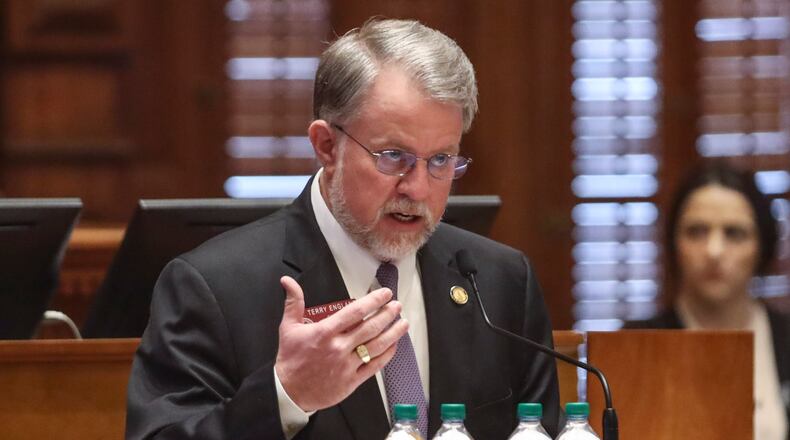The Georgia House and Senate gave final approval Thursday to a midyear budget that would provide $1,000 bonuses to most state employees, give 10% raises to prison guards, and increase spending on public health care and education.
The spending plan that runs through June 30 zipped through the two chambers the day after Gov. Brian Kemp and legislative leaders announced the bonuses for 57,000 state employees who earn less than $80,000 a year.
Kemp announced the same bonuses for Georgia’s public school teachers last month.
Both bonuses are being paid — directly or indirectly — from federal COVID-19 relief funds.
Kemp is expected to quickly sign the budget, which increases overall spending by $654 million.
House Appropriations Chairman Terry England, R-Auburn, told colleagues it was important to recognize the work of state nurses, of police, of staffers who clean restrooms at highway rest stops, and other employees who have continued working during the COVID-19 pandemic.
“Their job is not glamorous, it’s not headline-making,” England said. “But they are there.”
The midyear plan also would increase pay of prison and juvenile justice guards by 10% and give a boost in other areas where the state is having trouble keeping workers because of low salaries.
Members of the General Assembly, most of whom are paid $17,342 a year, would not receive the bonuses meant for full-time state employees. Being a member of the House or Senate is considered a part-time job.
The largest spending increase would be in education, where the House and Senate went along with Kemp’s proposal to backfill 60% of the spending reductions that lawmakers approved last year, when they cut 10% because of fears that state revenue would plummet due to the COVID-19 pandemic.
That didn’t happen. In fact, state tax collections have increased 6.3% during the first seven months of this fiscal year.
The budget would also pay for 520 new school buses, increase support for nursing homes hit hard by COVID-19 and add high-speed internet in rural areas.
It would spend $27 million to quickly modernize the Department of Public Health’s computer system that tracks immunizations and pay to hire several new staffers at the agency that has spent most of the past year fighting the COVID-19 pandemic.
About the Author
Keep Reading
The Latest
Featured




